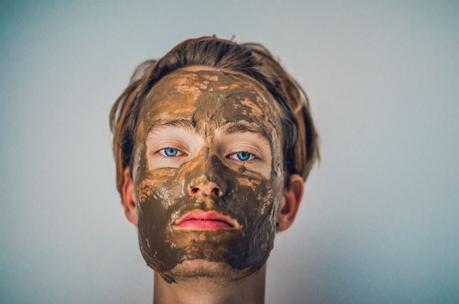
Caring for your skin is an ongoing effort that gets more involved as you age. Skin is tough yet extremely sensitive at the same time. It’s exceptionally resilient and capable of protecting our delicate insides from a world full of nastiness, but countless factors inside and outside of the body can impact our skin.
Creating a daily skin care routine can help you combat the outside forces that are negatively affecting your skin. A kit like Dermaclara Advanced is a great option if you’re starting a skin care routine from scratch because it contains everything you need at a minimum plus a few nice extras. Kits are also beneficial because the products are developed to compliment one another and target specific problems.
While you’re putting together a skin care routine, keep these five things in mind since they tend to be the most influential factors.

Weather
Mother Nature doles out something new every season that can affect our skin. Temperature and humidity are two of the biggest concerns because they can completely change your skin type from one season to the next.
- Spring – Spring is the high season for allergies that can cause a number of skin reactions.
- Summer – In the summertime humidity is at its highest, which means your skin will be oilier than ever.
- Fall – Fall is also full of allergens, and the weather is starting to cool off. Now is the time to make changes to your skin care routine to get ready for the winter.
- Winter – Protecting your skin during the winter means moisturizing, moisturizing, moisturizing because the air is much drier. Sitting inside isn’t any better since heaters also dry out the air.
No matter what season it is, wearing sunscreen is always a must since the sun never takes a day off.

Hormones
Pregnancy, puberty, PMS – all of these things can create hormone imbalances that show up in your skin. When hormones are raging and out of balance so is your epidermis.
Many hormones directly affect the skin since they trigger the oil producing sebaceous gland. That’s why acne is more frequent during premenstrual periods and puberty. But a slowdown in hormone production can also create skin changes. Testosterone is known to increase oil, and as estrogen levels drop with age the imbalance could cause adult acne.
Melasma is another skin problem that can occur when hormones are off. Pregnancy and birth control can both increase estrogen production, which ramps up melanin production. More melanin means you’ll have to deal with brown spots and discoloration.

Stress
One of the main causes of hormonal changes is stress. The primary skin culprit connected to stress is cortisol. In addition to increasing oil production, cortisol can also suppress your immune system making you more susceptible to skin infections and allergens. Stress is also known to create an imbalance between good and bad bacteria in the gut, which can cause your skin to break out in a rash or hives.
Another indirect affect of stress is sleep problems. While you’re asleep your body goes into repair mode. Skimping on sleep can impede cellular repair and cause the skin beneath your eyes to get puffy.

Diet
Our skin is constantly working to renew itself and protect our sensitive insides. What we eat fuels our skin cells just like the rest of our bodies. If you aren’t getting essential nutrients it’s more difficult for your skin to repair itself and ward off harmful environmental factors like UV rays. Even fat plays a vital role since it stores estrogen, a hormone that can keep your skin moisturized and firm.
Two diet adjustments that will help your skin include increasing your intake of antioxidants and water. Antioxidants are substances that remove oxidizing agents (i.e. free radicals) before they can damage skin cells. They’re able to safely interact with free radicals and neutralize them. The top antioxidants include vitamin C, vitamin E, and beta-carotene.
Staying hydrated is also important for your skin. Water is needed for all bodily functions right down to the cellular level. Everyday activities cause us to lose water so you have to rehydrate with at least 8 cups of fluids a day.

Exercise
Bet you didn’t realize breaking a sweat is just as good for your skin as it is for your waistline. For starters, exercise is a proven stress reliever. Beyond the stress relief, researchers at McMaster University have discovered that people who exercise regularly maintain the thickness of their dermis (the skin layer below the surface).
As we age the dermis thins and, as a result, the skin loses its support system. Elasticity is lost, which causes the skin to sag. Exercise has been shown to thicken the dermis and improve the top layer of skin (stratum corneum) no matter how old you are.
**

